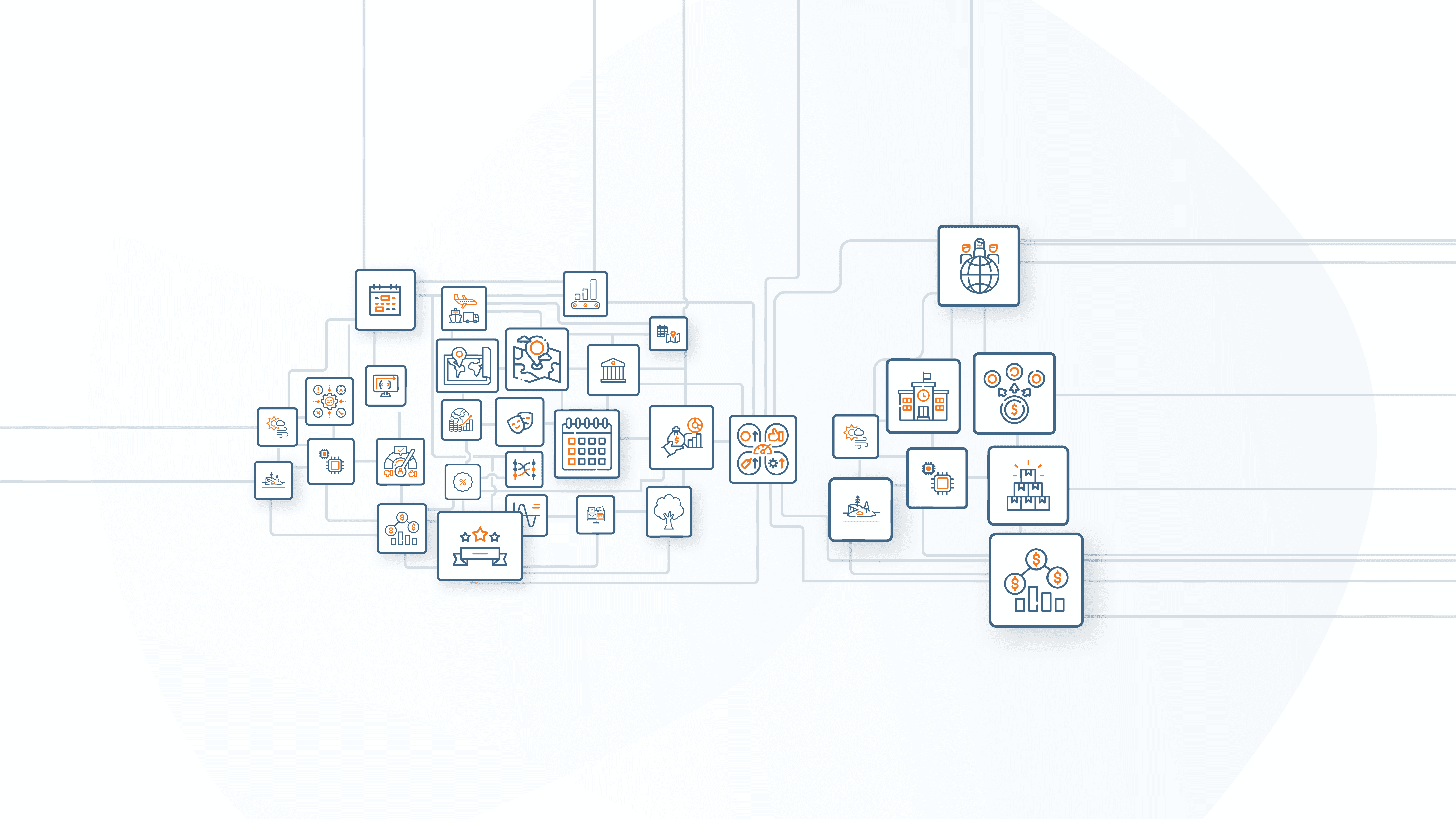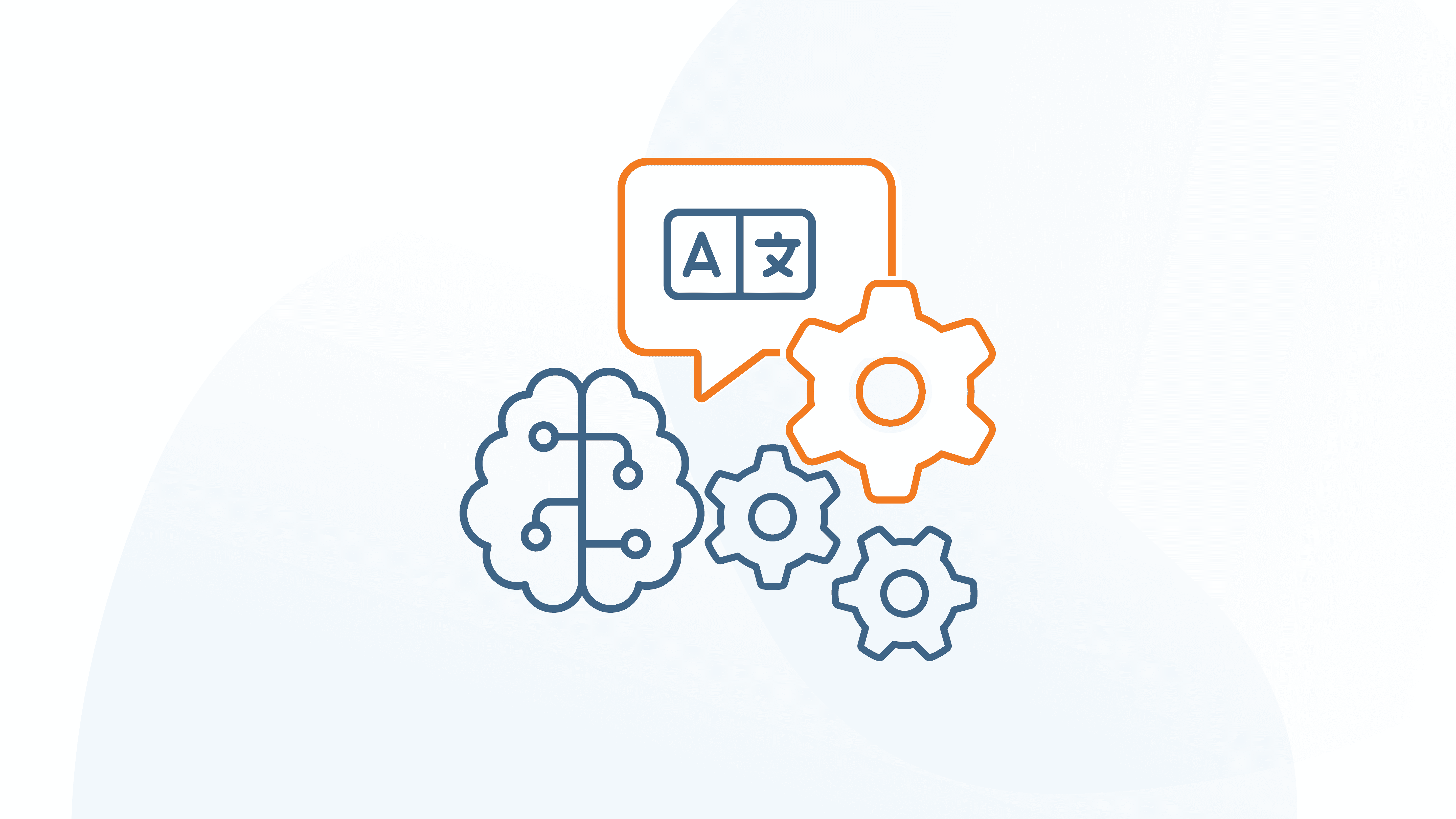

Stefán Baxter
CEO & Founder
Sep 20, 2024
Unlocking the Language of Business
How NLP is Revolutionizing Enterprise Operations
In an era where data is the new oil, Natural Language Processing (NLP) is the refinery that turns raw data into actionable insights. This article explores the transformative power of NLP in various business applications, from automating support to enhancing employee training.
The Challenge of Unstructured Data

Businesses generate a wealth of data daily, much of which is unstructured text. Traditional data analytics tools need help to make sense of this data, leaving a wealth of insights untapped.
How NLP Changes the Game
Automatic Understanding
NLP algorithms can understand, interpret, and generate human language. This capability opens the door to various applications that can automate and enhance business processes.
Business Use Cases:
NLP in Action

Customer Service Revolution
Imagine a telecom company inundated with customer queries. An NLP-powered chatbot handles routine questions, allowing human agents to deal with more complex issues. The result is faster response times and happier customers.
Personalized Pitch
An online retailer uses NLP to analyze customer behaviour and preferences. When a customer visits the site, the NLP algorithm generates personalized product recommendations, increasing the likelihood of a sale. The Research Goldmine
A pharmaceutical company uses NLP to scan thousands of research papers, extracting relevant information for new drug development, thereby accelerating the R&D process.
Market Research
A marketing firm uses NLP to analyze customer reviews and social media comments, converting qualitative sentiments into quantitative metrics that can be easily analyzed for trends and insights.
Brand Health Check
A consumer goods company uses NLP to monitor social media for mentions of its brand, analyzing the sentiment of the comments to gauge public opinion and adjust its marketing strategies accordingly.
The Workflow Optimizer
A logistics company uses NLP to analyze written reports and emails to identify bottlenecks in its business processes. The system then suggests workflow optimizations, making the operations more efficient.
The Adaptive Learning System
A multinational corporation uses NLP to analyze the performance of its employees during training simulations. The system adapts the training modules in real time based on the employee's strengths and weaknesses.
The Employees Right Hand
An executive uses an NLP-powered virtual assistant to schedule meetings, sort emails, and draft responses. The assistant learns the executive's preferences over time, becoming more efficient and personalized. The same goes for all other employees, which NLP can also empower.
Conclusion
Natural Language Processing is not just a technological advancement; it's a business enabler. From automating mundane tasks to generating new insights, NLP has the potential to revolutionize the way businesses operate.
In an era where data is the new oil, Natural Language Processing (NLP) is the refinery that turns raw data into actionable insights. This article explores the transformative power of NLP in various business applications, from automating support to enhancing employee training.
The Challenge of Unstructured Data

Businesses generate a wealth of data daily, much of which is unstructured text. Traditional data analytics tools need help to make sense of this data, leaving a wealth of insights untapped.
How NLP Changes the Game
Automatic Understanding
NLP algorithms can understand, interpret, and generate human language. This capability opens the door to various applications that can automate and enhance business processes.
Business Use Cases:
NLP in Action

Customer Service Revolution
Imagine a telecom company inundated with customer queries. An NLP-powered chatbot handles routine questions, allowing human agents to deal with more complex issues. The result is faster response times and happier customers.
Personalized Pitch
An online retailer uses NLP to analyze customer behaviour and preferences. When a customer visits the site, the NLP algorithm generates personalized product recommendations, increasing the likelihood of a sale. The Research Goldmine
A pharmaceutical company uses NLP to scan thousands of research papers, extracting relevant information for new drug development, thereby accelerating the R&D process.
Market Research
A marketing firm uses NLP to analyze customer reviews and social media comments, converting qualitative sentiments into quantitative metrics that can be easily analyzed for trends and insights.
Brand Health Check
A consumer goods company uses NLP to monitor social media for mentions of its brand, analyzing the sentiment of the comments to gauge public opinion and adjust its marketing strategies accordingly.
The Workflow Optimizer
A logistics company uses NLP to analyze written reports and emails to identify bottlenecks in its business processes. The system then suggests workflow optimizations, making the operations more efficient.
The Adaptive Learning System
A multinational corporation uses NLP to analyze the performance of its employees during training simulations. The system adapts the training modules in real time based on the employee's strengths and weaknesses.
The Employees Right Hand
An executive uses an NLP-powered virtual assistant to schedule meetings, sort emails, and draft responses. The assistant learns the executive's preferences over time, becoming more efficient and personalized. The same goes for all other employees, which NLP can also empower.
Conclusion
Natural Language Processing is not just a technological advancement; it's a business enabler. From automating mundane tasks to generating new insights, NLP has the potential to revolutionize the way businesses operate.
In an era where data is the new oil, Natural Language Processing (NLP) is the refinery that turns raw data into actionable insights. This article explores the transformative power of NLP in various business applications, from automating support to enhancing employee training.
The Challenge of Unstructured Data

Businesses generate a wealth of data daily, much of which is unstructured text. Traditional data analytics tools need help to make sense of this data, leaving a wealth of insights untapped.
How NLP Changes the Game
Automatic Understanding
NLP algorithms can understand, interpret, and generate human language. This capability opens the door to various applications that can automate and enhance business processes.
Business Use Cases:
NLP in Action

Customer Service Revolution
Imagine a telecom company inundated with customer queries. An NLP-powered chatbot handles routine questions, allowing human agents to deal with more complex issues. The result is faster response times and happier customers.
Personalized Pitch
An online retailer uses NLP to analyze customer behaviour and preferences. When a customer visits the site, the NLP algorithm generates personalized product recommendations, increasing the likelihood of a sale. The Research Goldmine
A pharmaceutical company uses NLP to scan thousands of research papers, extracting relevant information for new drug development, thereby accelerating the R&D process.
Market Research
A marketing firm uses NLP to analyze customer reviews and social media comments, converting qualitative sentiments into quantitative metrics that can be easily analyzed for trends and insights.
Brand Health Check
A consumer goods company uses NLP to monitor social media for mentions of its brand, analyzing the sentiment of the comments to gauge public opinion and adjust its marketing strategies accordingly.
The Workflow Optimizer
A logistics company uses NLP to analyze written reports and emails to identify bottlenecks in its business processes. The system then suggests workflow optimizations, making the operations more efficient.
The Adaptive Learning System
A multinational corporation uses NLP to analyze the performance of its employees during training simulations. The system adapts the training modules in real time based on the employee's strengths and weaknesses.
The Employees Right Hand
An executive uses an NLP-powered virtual assistant to schedule meetings, sort emails, and draft responses. The assistant learns the executive's preferences over time, becoming more efficient and personalized. The same goes for all other employees, which NLP can also empower.
Conclusion
Natural Language Processing is not just a technological advancement; it's a business enabler. From automating mundane tasks to generating new insights, NLP has the potential to revolutionize the way businesses operate.
In an era where data is the new oil, Natural Language Processing (NLP) is the refinery that turns raw data into actionable insights. This article explores the transformative power of NLP in various business applications, from automating support to enhancing employee training.
The Challenge of Unstructured Data

Businesses generate a wealth of data daily, much of which is unstructured text. Traditional data analytics tools need help to make sense of this data, leaving a wealth of insights untapped.
How NLP Changes the Game
Automatic Understanding
NLP algorithms can understand, interpret, and generate human language. This capability opens the door to various applications that can automate and enhance business processes.
Business Use Cases:
NLP in Action

Customer Service Revolution
Imagine a telecom company inundated with customer queries. An NLP-powered chatbot handles routine questions, allowing human agents to deal with more complex issues. The result is faster response times and happier customers.
Personalized Pitch
An online retailer uses NLP to analyze customer behaviour and preferences. When a customer visits the site, the NLP algorithm generates personalized product recommendations, increasing the likelihood of a sale. The Research Goldmine
A pharmaceutical company uses NLP to scan thousands of research papers, extracting relevant information for new drug development, thereby accelerating the R&D process.
Market Research
A marketing firm uses NLP to analyze customer reviews and social media comments, converting qualitative sentiments into quantitative metrics that can be easily analyzed for trends and insights.
Brand Health Check
A consumer goods company uses NLP to monitor social media for mentions of its brand, analyzing the sentiment of the comments to gauge public opinion and adjust its marketing strategies accordingly.
The Workflow Optimizer
A logistics company uses NLP to analyze written reports and emails to identify bottlenecks in its business processes. The system then suggests workflow optimizations, making the operations more efficient.
The Adaptive Learning System
A multinational corporation uses NLP to analyze the performance of its employees during training simulations. The system adapts the training modules in real time based on the employee's strengths and weaknesses.
The Employees Right Hand
An executive uses an NLP-powered virtual assistant to schedule meetings, sort emails, and draft responses. The assistant learns the executive's preferences over time, becoming more efficient and personalized. The same goes for all other employees, which NLP can also empower.
Conclusion
Natural Language Processing is not just a technological advancement; it's a business enabler. From automating mundane tasks to generating new insights, NLP has the potential to revolutionize the way businesses operate.


